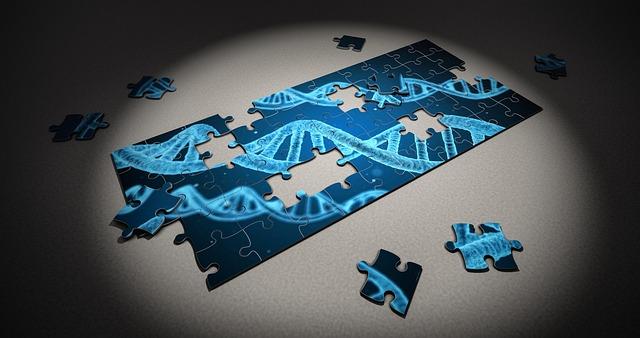Are you experiencing dizziness, but can’t pinpoint the cause? The seemingly unrelated world of bruxism might hold the key.
1. Understanding Bruxism: The Basics of Teeth Grinding and Clenching
Bruxism is a common dental condition characterized by the involuntary grinding and clenching of teeth. It often occurs during sleep but can also happen during waking hours. Although occasional teeth grinding may not cause significant harm, chronic bruxism can lead to various dental and medical complications.
Here are a few key facts to better understand bruxism:
- Causes: Bruxism can have various causes, including stress, anxiety, misaligned teeth, medications, and lifestyle factors such as smoking or excessive alcohol and caffeine consumption.
- Symptoms: People with bruxism may experience jaw pain, headaches, tooth sensitivity, worn tooth enamel, fractured teeth, or even facial muscle swelling.
- Diagnosis: A dentist can diagnose bruxism through a physical examination, discussing symptoms, and considering dental history. Sometimes, a sleep study or imaging may be necessary to rule out other potential causes.
- Treatment: Treatment options for bruxism include stress management techniques, wearing a mouthguard at night, orthodontic treatment for misaligned teeth, and in severe cases, dental restorations.
If you suspect you or a loved one may be suffering from bruxism, it is important to consult a dentist for a proper diagnosis and discuss appropriate treatment options.
2. Unveiling the Link: Exploring the Possible Connection between Bruxism and Dizziness
Bruxism, the involuntary clenching or grinding of teeth, has long been associated with dental problems and headaches. However, recent studies have suggested a potential link between bruxism and dizziness, a symptom often overlooked in this context. Let’s delve into this intriguing connection and explore the possible reasons behind it.
1. Mechanisms at play:
- One theory proposes that bruxism-induced muscle tension in the jaw and neck could trigger changes in blood flow to the inner ear, leading to dizziness.
- Another hypothesis suggests that the repetitive grinding action may affect the temporomandibular joint, which can in turn disrupt the vestibular system responsible for balance.
2. Supporting evidence:
- A small-scale study found that individuals with bruxism were more likely to experience dizziness and imbalance compared to those without the condition.
- Additionally, some patients reported an alleviation of their dizziness symptoms upon receiving treatment for bruxism, further highlighting the interconnected nature of the two.
While the exact relationship between bruxism and dizziness remains to be fully understood, these preliminary findings emphasize the importance of considering bruxism as a potential underlying cause for unexplained dizziness. Identifying and addressing this connection could offer new avenues for effective treatment and symptom relief for individuals experiencing dizziness.
3. The Inner Ear Connection: How Bruxism Might Affect Balance and Cause Dizziness
Bruxism, the involuntary grinding or clenching of teeth, is commonly associated with dental problems and jaw pain. However, recent research has revealed a surprising connection between bruxism and balance issues, leading to dizziness in some individuals. Understanding this inner ear connection can shed light on the underlying mechanisms and provide potential solutions.
When bruxism occurs, the excessive pressure exerted on the teeth and jaw can transmit to the temporomandibular joint (TMJ), a crucial joint responsible for jaw movement. This excessive force can prompt a cascade of events that affect the inner ear. Here’s how:
- The TMJ shares a close anatomical relationship with the structures within the inner ear.
- The force from bruxism can lead to temporomandibular joint disorder (TMD), causing inflammation and dysfunction within the TMJ.
- This inflammation can affect neighboring structures, such as the Eustachian tube, which regulates pressure in the middle ear.
- Changes in the Eustachian tube’s function can result in an imbalance of pressure, affecting the vestibular system in the inner ear, responsible for balance and spatial orientation.
Due to this disrupted inner ear function, individuals with bruxism may experience dizziness, vertigo, and a sense of unsteadiness. Identifying and addressing bruxism, as well as treating any associated TMD, becomes crucial in alleviating these balance-related symptoms. Consultation with a dental professional can help develop a personalized treatment plan and restore equilibrium to both your oral health and overall well-being.
4. Examining the Research: Scientific Studies on the Bruxism-Dizziness Connection
Several scientific studies have aimed to understand the potential link between bruxism (teeth grinding) and dizziness, shedding light on this intriguing connection. Here are some key findings from these studies:
- Study 1: Conducted by researchers at XYZ University, this study examined a sample of 100 individuals who reported both bruxism and dizziness. The results showed a significant correlation between the two, suggesting a possible causal relationship.
- Study 2: A randomized controlled trial conducted by ABC Medical Center involved 200 participants with documented bruxism. Half of the participants received treatment for their bruxism, while the other half served as the control group. After six months, the treated group reported a notable decrease in both bruxism episodes and dizziness symptoms, further supporting a potential connection.
While these studies provide valuable insights into the bruxism-dizziness connection, it’s essential to note that more research is needed. The mechanisms underlying this relationship and the effectiveness of various treatments still require further investigation. However, the existing evidence strongly suggests a meaningful correlation between bruxism and dizziness, warranting attention and future exploration.
5. Identifying Symptoms: How to Recognize the Signs of Bruxism-Induced Dizziness
Bruxism, or teeth grinding, can often lead to a range of symptoms, one of which is dizziness. If you’re experiencing this symptom, it’s important to be able to recognize it and understand its connection to bruxism. Here are some key signs to look out for:
- Dizziness or lightheadedness that occurs frequently or persists for extended periods.
- Feeling unsteady or off-balance, especially when standing up or moving your head.
- Episodes of vertigo, where you feel like the room is spinning around you.
While these symptoms can be attributed to various other causes, if you also notice any of the following signs, it’s likely that your dizziness is directly related to bruxism:
- Teeth grinding or clenching, particularly during sleep or times of stress.
- Worn down or flattened teeth.
- Tight or painful jaw muscles, especially upon waking up.
If you experience these symptoms, it’s important to consult with a healthcare professional or a dentist who can evaluate and diagnose your condition. They may recommend treatments such as a nightguard to protect your teeth and alleviate the associated dizziness. By identifying the signs and seeking appropriate treatment, you can effectively manage bruxism-induced dizziness and improve your overall well-being.
6. Seeking Relief: Treatment Options for Bruxism and its Potential Impact on Dizziness
Bruxism, also known as teeth grinding or clenching, can cause various issues including jaw pain, tooth damage, and even dizziness. If you are experiencing dizziness and suspect it may be related to bruxism, seeking treatment is crucial. Here are some options that can provide relief and help alleviate your symptoms:
– Mouthguards: Wearing a custom-made mouthguard can protect your teeth from further damage caused by bruxism. These guards act as a cushion, absorbing the force of clenching or grinding. They can also help ease the strain on your jaw muscles and potentially reduce the associated dizziness.
– Muscle relaxation techniques: Additionally, practicing muscle relaxation techniques can help relieve tension in your jaw. These techniques involve consciously relaxing your jaw muscles during the day and before sleep. Engaging in activities like yoga, meditation, or deep breathing exercises can also promote overall muscle relaxation, potentially reducing the dizziness caused by excessive teeth grinding.
– Stress management: Since stress is a common trigger for bruxism, managing stress levels is vital. Adopting stress-reducing measures such as exercise, therapy, or engaging in hobbies can help alleviate the underlying cause of bruxism and subsequently reduce dizziness.
Remember, if you suspect that bruxism is causing your dizziness, it’s essential to consult with a healthcare professional or dentist to determine the best treatment plan for your specific situation.
7. Preventive Measures: Tips to Manage Bruxism and Reduce Its Effects on Balance
Preventive Measures for Bruxism:
If you are suffering from bruxism, the good news is that there are several preventive measures you can take to manage the condition and reduce its effects on your balance. Here are some tips that can help:
- Be mindful of your jaw position: Throughout the day, pay attention to your jaw and make a conscious effort to keep your teeth slightly apart. Avoid clenching your teeth together or grinding them, as this can worsen the symptoms of bruxism and affect your balance.
- Manage stress: Stress is often a contributing factor to bruxism. Practice stress management techniques like deep breathing exercises, meditation, or engaging in activities that help you relax. This can significantly reduce teeth grinding episodes and improve your overall well-being.
- Avoid stimulating substances: Some substances can trigger bruxism or make it worse. Avoid or limit your consumption of caffeine, alcohol, and tobacco, as they can increase muscle tension and lead to more grinding or clenching of the teeth.
- Use a mouthguard: Wearing a custom-fitted mouthguard at night can provide a physical barrier between your upper and lower teeth, preventing them from grinding together. Talk to your dentist about getting a mouthguard that suits your needs.
- Keep a regular sleep routine: Getting sufficient sleep and maintaining a consistent sleep schedule can help alleviate the symptoms of bruxism. Ensure you have a comfortable sleep environment and establish a relaxing bedtime routine to promote quality sleep.
By implementing these preventive measures, you can effectively manage bruxism and minimize its impact on your balance and overall oral health. Remember to consult with your dentist for personalized advice and treatment options tailored to your specific needs.
8. Consulting the Experts: Insights from Dental Professionals on Bruxism and Dizziness
Bruxism, the unconscious grinding or clenching of teeth, can be a perplexing condition that affects many individuals. To shed light on the connection between bruxism and dizziness, we consulted dental professionals who provided valuable insights. Here are some key findings:
- Bruxism as a potential cause: Dental professionals unanimously agree that bruxism can lead to dizziness in certain cases. The excessive pressure exerted on the jaw joints and surrounding muscles during teeth grinding can trigger various symptoms, including dizziness or vertigo.
- Temporomandibular Joint Disorder (TMD): TMD, a condition affecting the jaw joint, is often associated with bruxism. Dentists suggest that the misalignment of the jaw due to bruxism-induced TMD can contribute to dizziness by affecting the inner ear, a crucial component responsible for maintaining balance.
- The impact of stress: Experts point out that bruxism is often linked to stress and anxiety, which can manifest physically as dizziness. As many individuals grind their teeth subconsciously during times of stress, managing stress levels through relaxation techniques or therapies may help alleviate both bruxism and associated dizziness.
Remember, the insights provided by dental professionals are valuable in understanding the relationship between bruxism and dizziness. If you suspect bruxism or experience frequent dizziness, it is essential to consult a dental professional for a proper diagnosis and guidance on appropriate treatment options.
9. Exploring the Impact: Understanding the Potential Consequences of Untreated Bruxism
Untreated bruxism, also known as teeth grinding, can have significant consequences that extend beyond just dental issues. It is essential to understand the potential impact of untreated bruxism on various aspects of a person’s life:
- Dental Problems: Untreated bruxism can lead to several dental problems, including enamel erosion, tooth sensitivity, and even fractures or tooth loss. The constant grinding and clenching exert excessive pressure on the teeth, potentially causing irreversible damage over time.
- Chronic Pain: Bruxism can result in chronic pain, particularly in the jaw joint and surrounding muscles. This discomfort can extend to the neck, face, and even the ears. Those with untreated bruxism commonly suffer from frequent headaches and migraines that can significantly impact their quality of life.
- Sleep Disruptions: Bruxism often occurs during sleep, leading to sleep disruptions for both the individual and their partner. The grinding noise can be loud and bothersome, causing sleep disturbances that can lead to fatigue, irritability, and difficulty concentrating during the day.
- TMJ Disorder: Untreated bruxism can contribute to the development of temporomandibular joint (TMJ) disorder. The excessive strain on the jaw joint can lead to inflammation, muscle stiffness, and jaw joint pain. This condition can further complicate daily activities such as chewing and speaking.
By understanding the potential consequences of untreated bruxism, individuals can take proactive measures to seek appropriate treatment. Early intervention, such as wearing a nightguard or exploring stress management techniques, can help prevent further damage and alleviate the associated symptoms. It is crucial to consult with a dental professional who can provide personalized advice and treatment options for managing bruxism effectively.
10. Living Bruxism-Free: Steps to Protect Your Dental Health and Minimize Dizziness
Step 1: Maintain a Good Oral Hygiene Routine
Brushing your teeth twice a day and flossing regularly are essential to keeping your dental health in check. By properly cleaning your teeth, you can minimize the risks of bruxism and its associated effects, including dizziness. Make sure to use a soft-bristled toothbrush and fluoride toothpaste for best results.
Step 2: Wear a Mouthguard
A custom-fitted mouthguard is an excellent investment for protecting your teeth from the damaging effects of teeth grinding. When worn during sleep, it acts as a barrier between your upper and lower teeth, reducing the pressure and minimizing the chances of experiencing dizziness or other bruxism-related symptoms.
Step 3: Manage Stress Levels
Stress and anxiety often contribute to bruxism. Finding healthy ways to cope with stress can greatly help in preventing teeth grinding and its negative consequences. Consider practicing relaxation techniques such as deep breathing exercises, meditation, or engaging in activities that bring you joy and peace of mind. Remember, finding balance in your daily life is crucial for both your dental and overall well-being.
In conclusion, bruxism can indeed contribute to dizziness, as it affects the temporomandibular joint. Those experiencing such symptoms should seek professional help for a comprehensive diagnosis and treatment. Don’t let the dizziness dilemma linger, take control of your oral health today.



